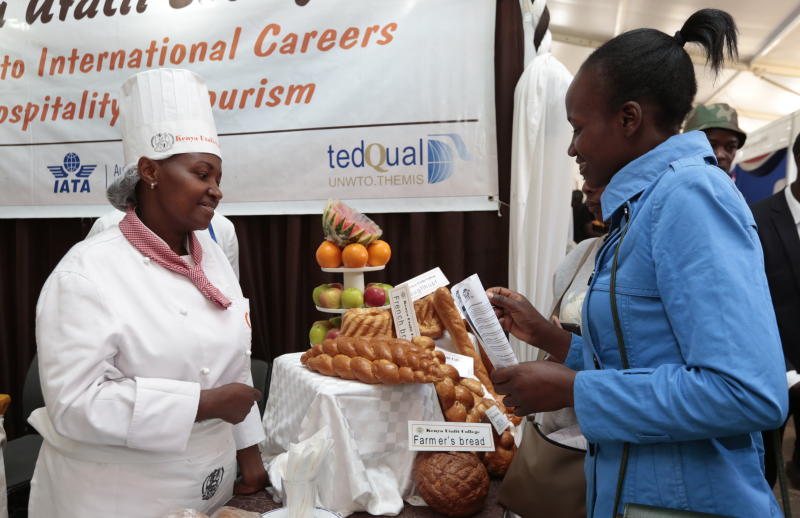×
The Standard e-Paper
Smart Minds Choose Us

Innovations on fighting climate change and waste reduction dominated a three-day showcase of skills by young innovators that ends today.
Dubbed “Hands on the Future,” the exhibitions at KICC sought to promote the pursuit of technical and vocational skills as students and instructors from various Technical and Vocational Education and Training (TVET) institutions and various stakeholders demonstrated their capabilities.